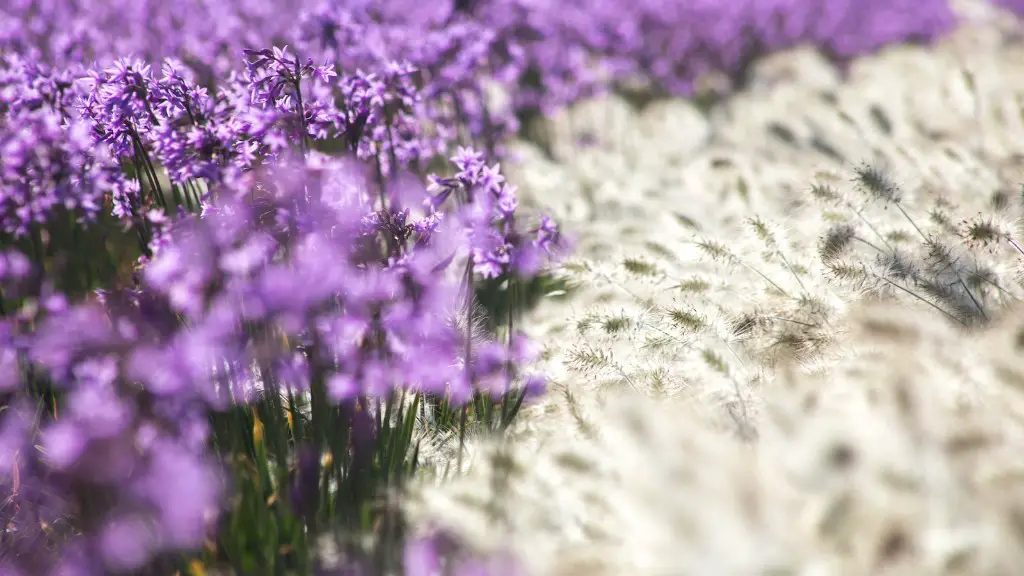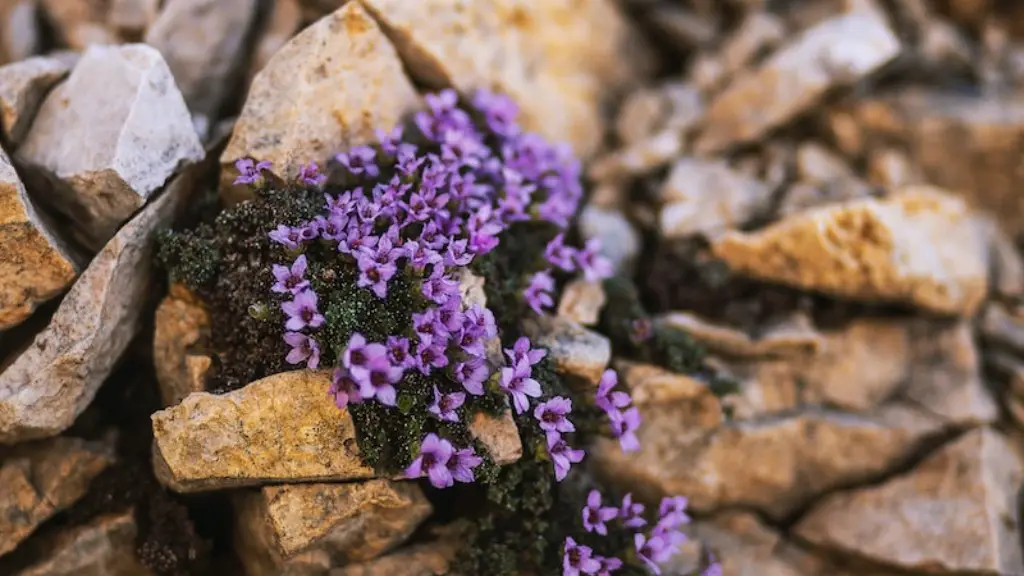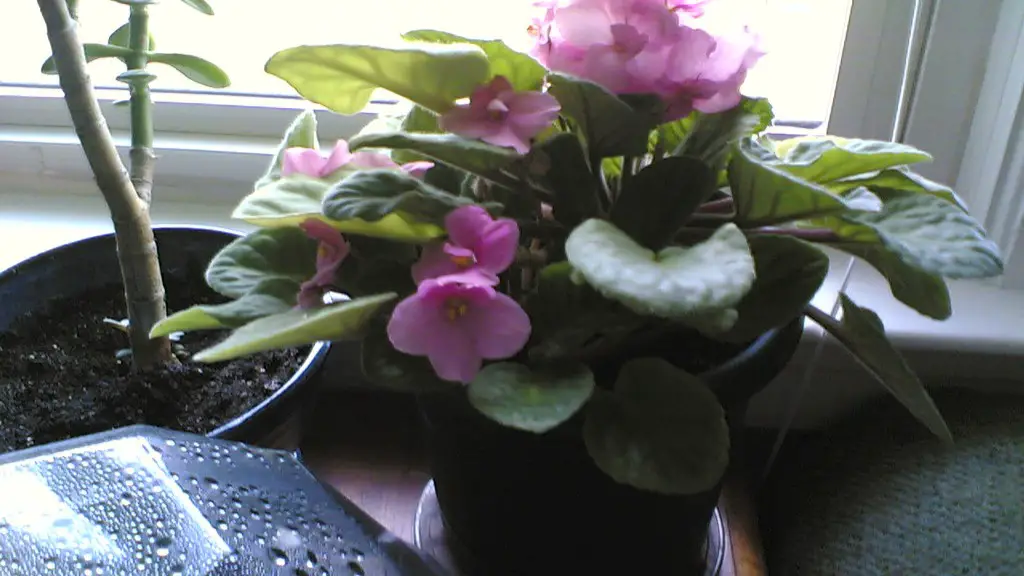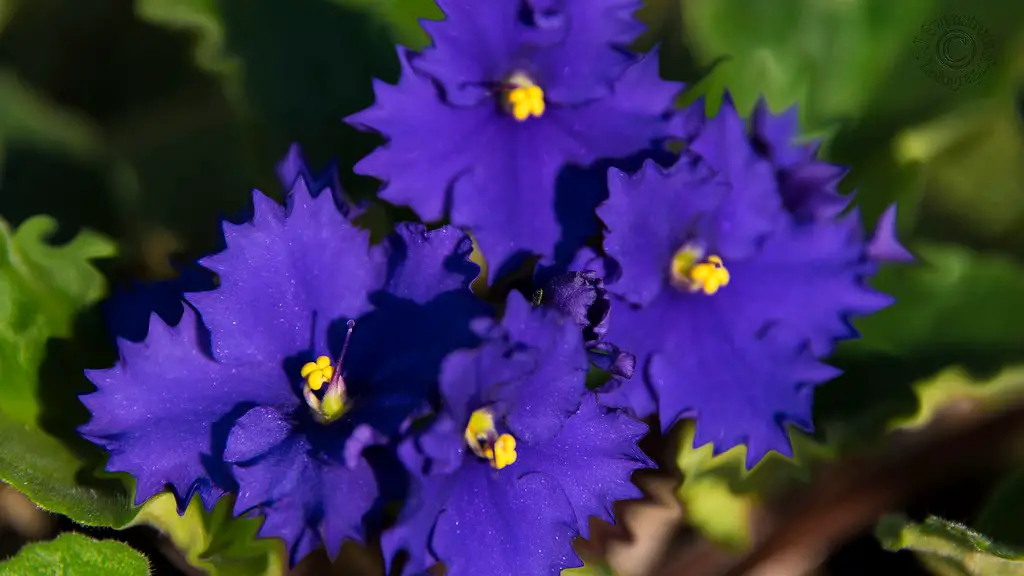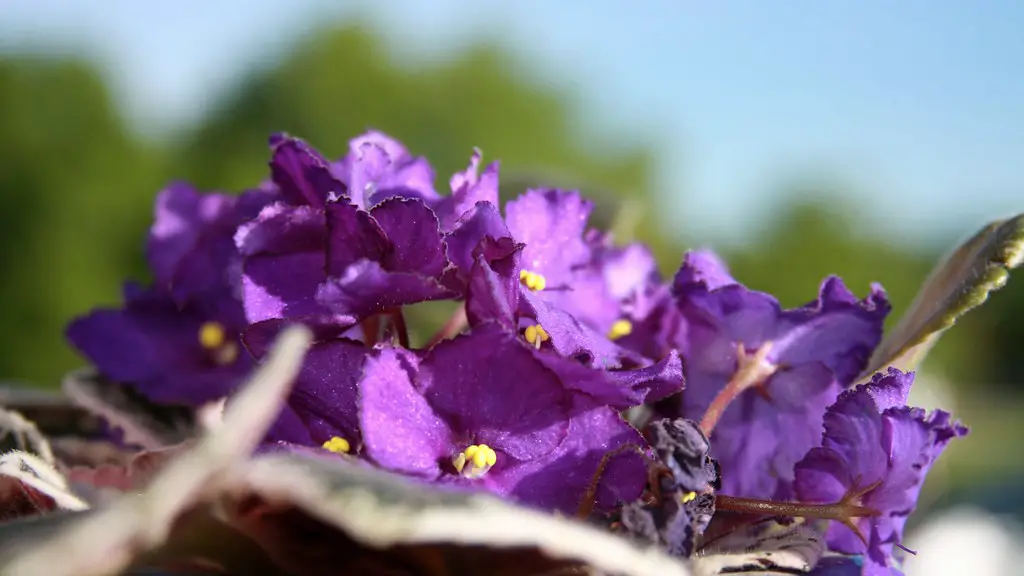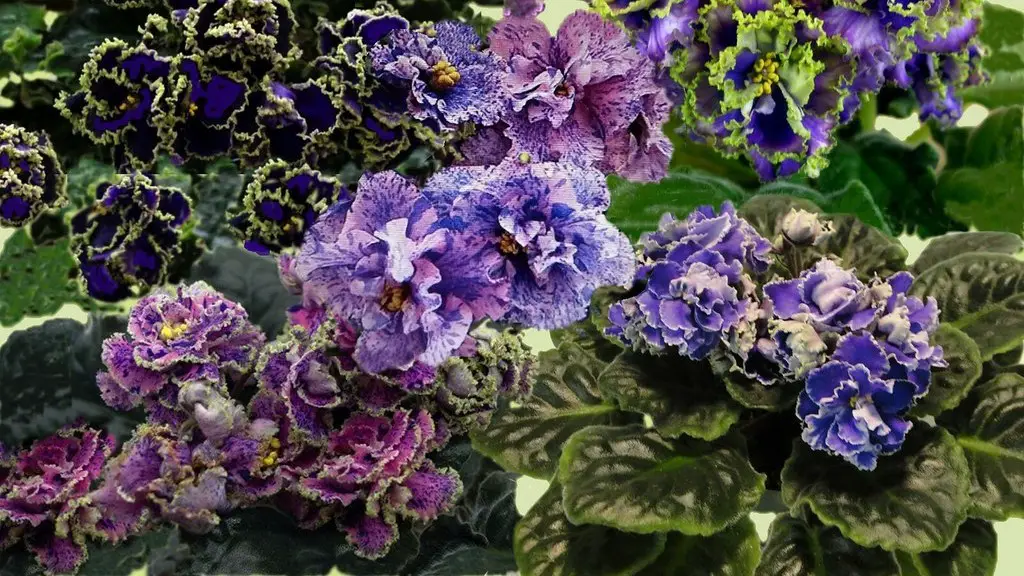African violets (Saintpaulia) are a darling houseplant known for their soft, furry leaves and delicate blooms. They are relatively easy to care for, but there are a few key things to keep in mind when it comes to watering your African violet. African violets need to be watered with lukewarm water, and it is best to use water that has been sitting out for a day or two so that the chlorine can evaporate. Allow the soil to become dry to the touch in between watering, and make sure that the plant is not sitting in water for extended periods of time.
African violets need water that is soft and has a neutral pH.
What is the best way to water African Violets?
Watering your plant is very important to its health and growth. Make sure to keep the soil moist to dry, and allow the soil around the roots to dry out before watering again. This will encourage blooming. Water from the bottom by placing the plastic grower’s pot in water, and allowing the plant to absorb the water ( not more than 30 minutes ).
African violets need to be watered around once a week, and they prefer distilled water or water that has sat out on the counter for 24 hours and is lukewarm. Watering from the bottom works well. A few tips will significantly increase your success with this plant and help it to rebloom.
Do African Violets need to be watered from the bottom
It is best to water African violets from the bottom. This allows the water to go directly to the roots without wetting the leaves. If you water from the top, be careful not to get water on the leaves when the plant is in the sun. This is to avoid leaf spots.
If you water your African violets only once a week and allow the plant to completely dry between waterings, you can set up a wicking system to make sure they’re never over watered. This system will wick moisture from the soil up to the leaves, where the plant can use it.
Can I use tap water for African violets?
If you are unsure about the quality of your tap water, it is best to err on the side of caution and use filtered or distilled water for your African violets. Chlorine levels can fluctuate depending on the season, and in some areas tap water may have high levels of chlorine, chloramines, or dissolved solids. These things may adversely affect your African violets, so it is best to use filtered or distilled water if you are unsure about the quality of your tap water.
It is important to remember not to mist the foliage of African violets, as this can cause permanent leaf spotting. Instead, water the plants at the base, making sure that the water is room temperature. African violets are also susceptible to crown rot, so it is important to keep the crown (the section of the plant at soil level) from becoming saturated with water.
Can you spray African violets with soapy water?
The African Violet is a delicate plant that requires special care when cleaning. The leaves are especially sensitive to harsh chemicals and cleaners, so a mild solution of liquid soap and water is the best way to clean them. Simply fill a spray bottle with the solution and mist the leaves lightly. Avoid the center crown of the plant, as this is the most delicate part.
Make sure to keep African violets indoors in North America, as their leaves need to stay dry. These plants prefer bright, indirect light for the best color and blooms. A plant stand three feet away from a west- or south-facing window is an ideal location.
Do violets like coffee water
Coffee grounds are a great way to fertilize your African violets. Just mix some coffee grounds with some dried egg shells and work it into the top of the soil. You’ll need to replenish it every few months, but it’s a great way to keep your plants healthy and hydrated.
Your African violet is overwatered if the leaves are droopy, soft, and mushy. These additional signs can help confirm overwatering is the source of your plant’s struggles:
The leaves may be yellow or pale green.
The stem may be soft or limp.
The potting mix may be very wet or soggy.
You may see mold or mildew on the leaves or stem.
If you suspect your plant is overwatered, allow the top inch or so of the potting mix to dry out before watering again. If the potting mix is very wet, you may need to repot the plant in fresh, dry mix.
How often do you feed African violet?
It is important to fertilizer your African Violet once every 14 days during the spring and summer. However, during the fall and winter it is important to NOT fertilizer the plant to prevent over-fertilizing.
African violets should be repotted every two to three years to ensure they have enough space to grow. If you notice that your plant is becoming potbound (the roots are growing out of the drainage holes), it’s time to repot.
Can you water African violets with ice cubes
It’s best to use room temperature water when watering African violets, as using ice cubes can damage the plants. The cold water from the ice cubes can make the violets more susceptible to discoloration.
If you notice excessive moisture on the crown leaves of your violets, it is important to take action immediately. Violets are highly susceptible to a number of deadly pathogens, such as Crown Rot and Pythium. Much less serious, though still alarming, are the brown or yellow leaf spots which result from leaving water on the leaves.
The best way to combat these problems is to ensure that your violets are getting the proper amount of ventilation and light. If you suspect that your plant is infected with a pathogen, it is important to consult with a professional immediately.
Does African violet like full sun?
African violets need indirect sunlight to avoid burning the leaves. The best way to provide this is to choose a north- or east-facing window. Keep plants away from cold glass and rotate the pot once a week so all leaves receive light.
Coffee grounds are slightly acidic and contain nitrogen, which helps plants grow healthy foliage. Occasionally sprinkling used coffee grounds on top of your African violet potting soil can be good for the plant.
Warp Up
African violets need water that is high in acidity in order to bloom. The best type of water to use is rainwater or distilled water.
African violets need to be watered with lukewarm water. They also need to be watered from the bottom so that their leaves do not get wet.
